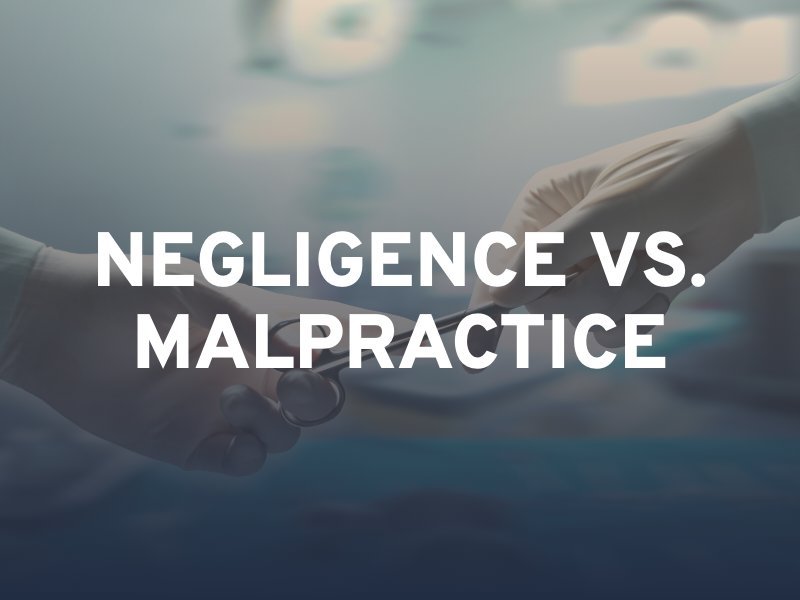Negligence is a keyword in personal injury law. It describes a breach of the accepted standards of care. When someone is negligent in the medical industry, it is called malpractice. Although people often use the terms negligence and malpractice interchangeably, on a legal level, there are nuances between the two. Understanding the difference can help you have a successful injury claim in New Jersey.

The legal definition of negligence is the failure to take proper or reasonable care in doing something, such as operating a motor vehicle or maintaining a property. Negligence can take many shapes and forms. When someone’s negligence gives another person an injury, the injured victim has the right to file a tort claim in New Jersey. A tort claim aims to hold the negligent party financially responsible for related damages, such as medical bills and pain and suffering.
Medical negligence specifically refers to a health care professional’s failure to take the proper care in treating a patient, resulting in a patient injury or death. A physician does not have to have intended to harm a patient to be guilty of medical negligence. Negligence refers to an accidental, unintentional or careless breach of the physician’s duty of care to the patient. Intent is the key difference between medical negligence and malpractice.
Intent is present in medical malpractice. While this may not mean a physician intended to harm a patient, it does mean the physician knowingly and intentionally breached the proper standard of care. The doctor, surgeon or nurse understood the duty of care, knew the risks of breaching this duty yet knowingly did not take the proper measures. When a doctor knowingly fails to meet his or her duty of care, resulting in patient injury, that doctor is guilty of medical malpractice.
In essence, medical negligence is a mistake that causes a patient unintended harm, while malpractice is a knowing and intentional breach of the medical standard of care. Both types of torts can lead to civil claims in New Jersey. Any injury, illness or death caused by a health care professional’s wrongdoing – intentional or unintentional – can give a patient grounds to file a medical malpractice claim.
If you were injured while under the care of a doctor or health care center in New Jersey, consider whether you are the victim of medical malpractice. If so, the defendant may owe you financial compensation for your losses. To have a valid medical malpractice claim, you will need proof that establishes four main things as most likely to be true.
If you or your Monmouth County medical malpractice attorney can prove all four of these elements as more likely to be true than not true, the courts in New Jersey will award you the compensation to make you whole again. A lawyer can help you gather evidence of medical negligence or malpractice, go up against a hospital or physician in New Jersey for you, and fight for maximum compensation on your behalf. Consult with an attorney as soon as possible for assistance with your case.